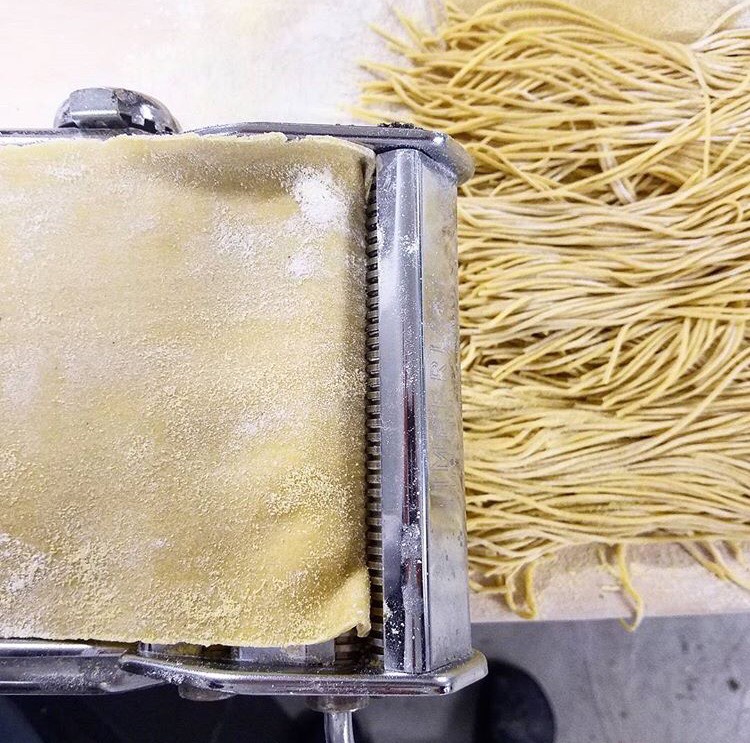https://www.instagram.com/p/BONMfQ9BAOF/
The New York Daily News reports on Citymeals on Wheels’ 35th anniversary:
“For more than three decades, the nonprofit has provided nourishment to elderly New Yorkers like Violeta Elgait, who is disabled and lives on the fourth floor of a Hell’s Kitchen walk-up.”
The New Yorker believes quinoa is the new Big Mac:
“Eatsa’s other big cost is its ingredients. The company uses organic quinoa sourced from the grain’s birthplace, the Andes region of Bolivia and Peru, which still produces the world’s highest-quality varietals—large, fluffy quinoa with mild flavor. Both countries have restricted the release of their heirloom seeds to international growers, so for the time being they remain the titans of quinoa.”
Alternet writes about how vacant buildings can be turned into urban farms:
“The farm partners with local grocers to expand access and further reduce climate impact by reducing grocers’ reliance on produce transported long distances. On average, Locals yields 3,458 pounds (1,568.5 kilograms) per month, composed primarily of micro greens, edible flowers, and herbs in addition to a small scale research and development project work shopping mini vegetables and organic feed crops. Locals is looking to deepen its impact by incorporating more area nonprofits and educational centers.”
As well as young farmers who are fighting water scarcity:
“Despite the importance of Western agriculture, farmers are in increasingly short supply. The average age of the American farmer is 58, and farmers over 65 outnumber farmers under 35 by a ratio of six-to-one. According to the National Young Farmers Coalition (NYFC), the nonprofit organization that produced Conservation Generation as well as a report by the same name, lack of access to affordable land and water are two of the biggest issues preventing more young people from succeeding in agriculture.”
The Record Online reports that the number of farm distilleries in New York state has nearly doubled in recent years: “Cuomo says the rapid increase in the number of businesses shows that state efforts to help the burgeoning craft beverage industry are paying off. The 2014 Craft New York Act cut regulatory red tape and lifted production caps in an attempt to rewrite state laws on alcohol production that in many cases dated back to prohibition.”
Quartz shares that Africa, home to a quarter of the world’s arable land, will soon have to import half of its grains: “With a population expected to expand by another 1.3 billion people by 2050, Sub-saharan African countries will have to import half of all needed cereals in the next 30 years, if drastic changes to agricultural methods aren’t taken, the study concluded. In addition to closing the gap between actual and potential crop yields, farms will need to increase crop intensity, or the amount of crops grown on the same field within a year, and expand irrigation.”
Civil Eats reports on some of the latest evidence that we’re moving into a post-antibiotic age: “Last week, a team of Ohio State University researchers published the results of a frightening scientific study. The group found bacteria possessing a gene resistant to carbapenems—a class of drugs used as a last resort when all other antibiotics have failed—on a Midwestern hog farm. The scientists fear their discovery could signal ‘the end of the antibiotic age’—a time when drugs no longer work against deadly diseases.”
The New York Times highlights an edible product that could help abate large-scale food waste: “Using leaves, stems, banana peels and other fresh plant materials left behind after fruits and vegetables are picked or processed, Apeel has developed a method for creating imperceptible, edible barriers that the company says can extend the life of produce like green beans and berries by as much as five times. Apeel can even deliver a day-of-the-week bunch of bananas, each ripening on a different day.”
Also according to the Times, the Twinkie has made the super rich even richer: “Behind the financial maneuvering at Hostess, an investigation by The New York Times found a blueprint for how private equity executives like those at Apollo have amassed some of the greatest fortunes of the modern era.”



